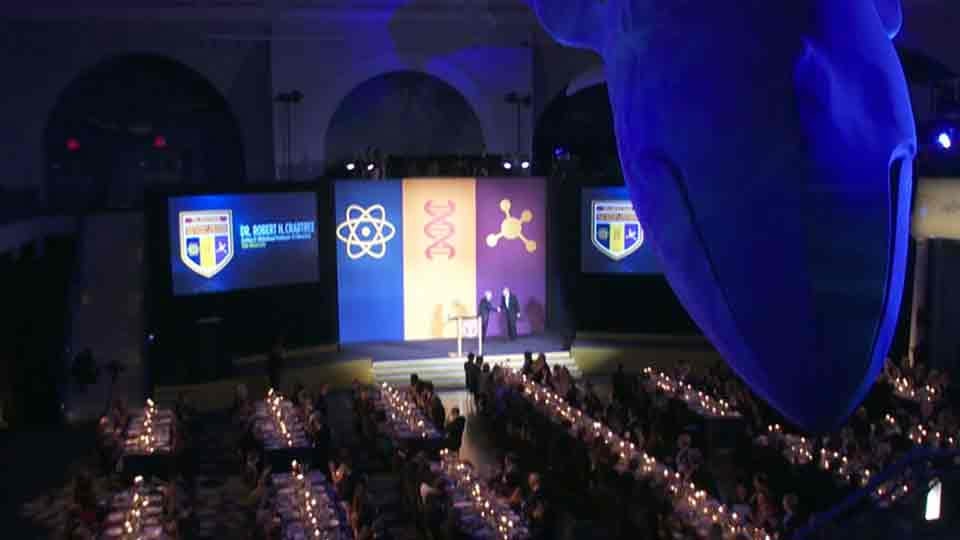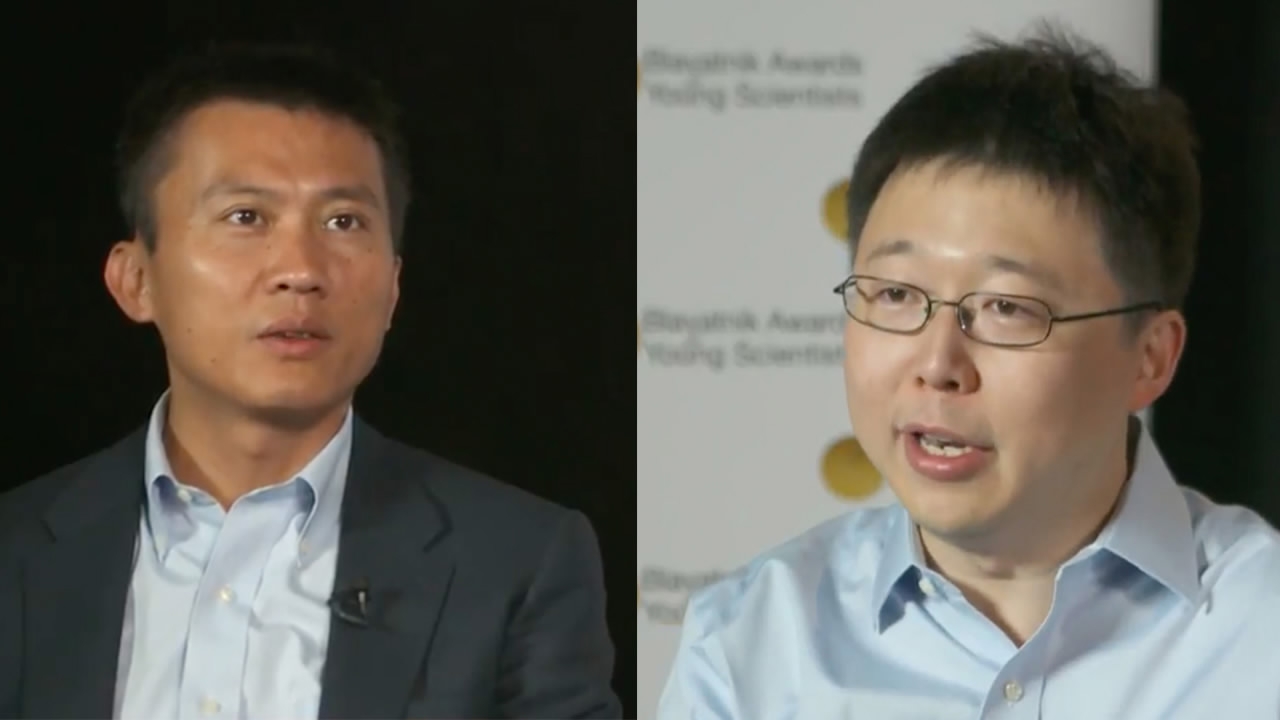
Science
18:10, 28-Sep-2017
Chinese-born scientists win prestigious US science awards
CGTN

Two Chinese immigrants were among the three winners of a prestigious science award. The Blavatnik National Awards for Young Scientists recognizes American researchers under age 43.
Winners Dr. Feng Zhang and Dr. Yi Cui were among the more than 300 scientists vying for the honor — and the prize money of 250,000 US dollars.
Beneath the iconic model of a giant blue whale at the American Museum of Natural History gathered some of the world’s most brilliant people to celebrate the most promising scientists in America.
Nobel laureates and presidents of some of America’s top universities, were all gathered to recognize the three laureates who beat out more than 300 others to win the awards. They were being recognized not just for their contributions to their respective fields, but also their potential to change the world.

Dr. Feng Zhang won in the Life Science category for his contributions to neuroscience and his role in developing the revolutionary CRISPR-Cas9 gene-editing system. Dr. Yi Cui won in the Physical Sciences and Engineering category for his use of nanomaterials for environmental protection, and the development of sustainable energy sources.
“The contributions of immigrants are certainly reflected this year as two of our laureates are Chinese-born scientists,” the New York Academy of Sciences’ Chief Scientific Officer Brooke Grindlinger said. “And we’re absolutely delighted to recognize them here tonight and see them also mentoring the next generation of scientists from China and from other countries around the world.”
Away from the glitz and glamour, Dr. Feng Zhang explained the CRISPR-cas9.
“What CRISPR-cas9 allow us to do is go into the genome, into the DNA, program it so we can snip out a mutation sequence and then put in the correct DNA so that one day we may be able to develop therapeutics to treat many genetic diseases,” Dr. Zhang explained.
Dr. Yi Cui has developed a nanotextile made from plastic that is similar to kitchen wrap. It can cool the body down by three degrees and save 30 percent of the electricity used in air conditioning. He heads one of the world’s leading laboratories that uses nanomaterial research to address energy and environmental challenges.
“The global warming effect right there, we need to solve that problem,” said Dr Cui. “And looking at the pollution, if you travel to China and India you see the air pollution very clearly. And how do we solve those problems? You look at the water, it’s polluted. It’s those problems still existing that motivate every day for me to think ‘what might be the best solution?’ So that keeps me going.”
And that’s one crucial trait that all the laureates share – their quest to provide solutions to the world’s most pressing challenges.

SITEMAP
Copyright © 2018 CGTN. Beijing ICP prepared NO.16065310-3
Copyright © 2018 CGTN. Beijing ICP prepared NO.16065310-3